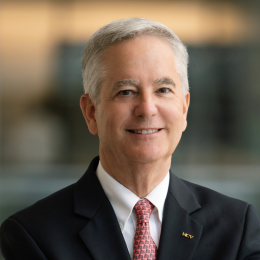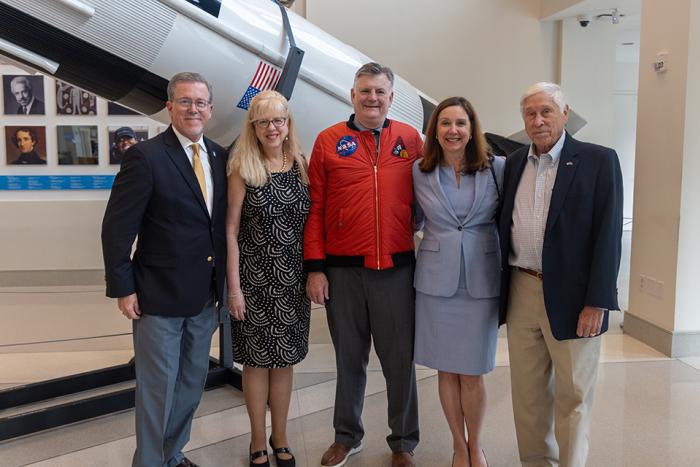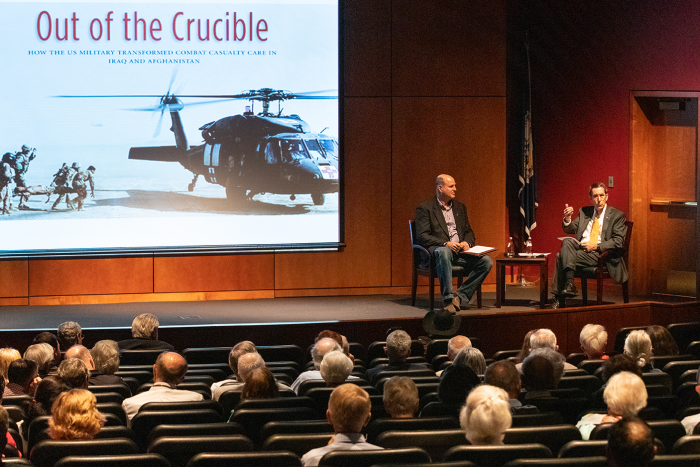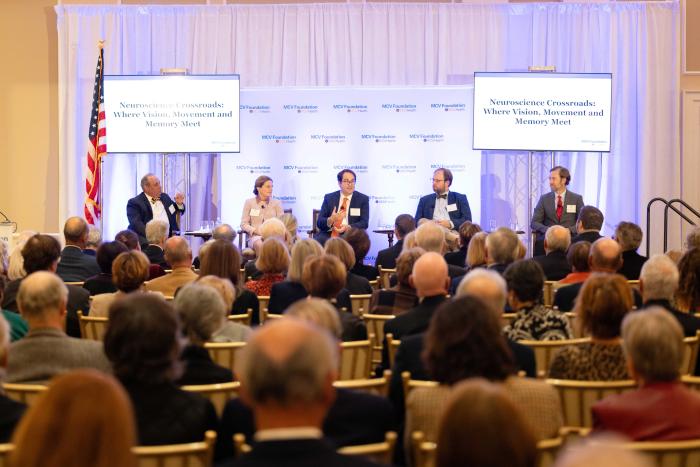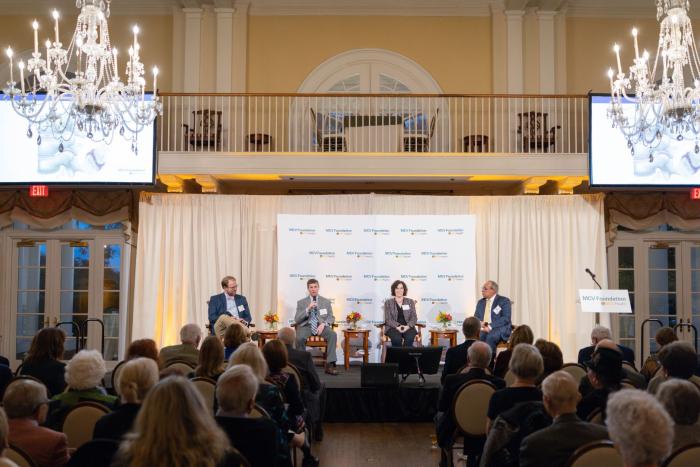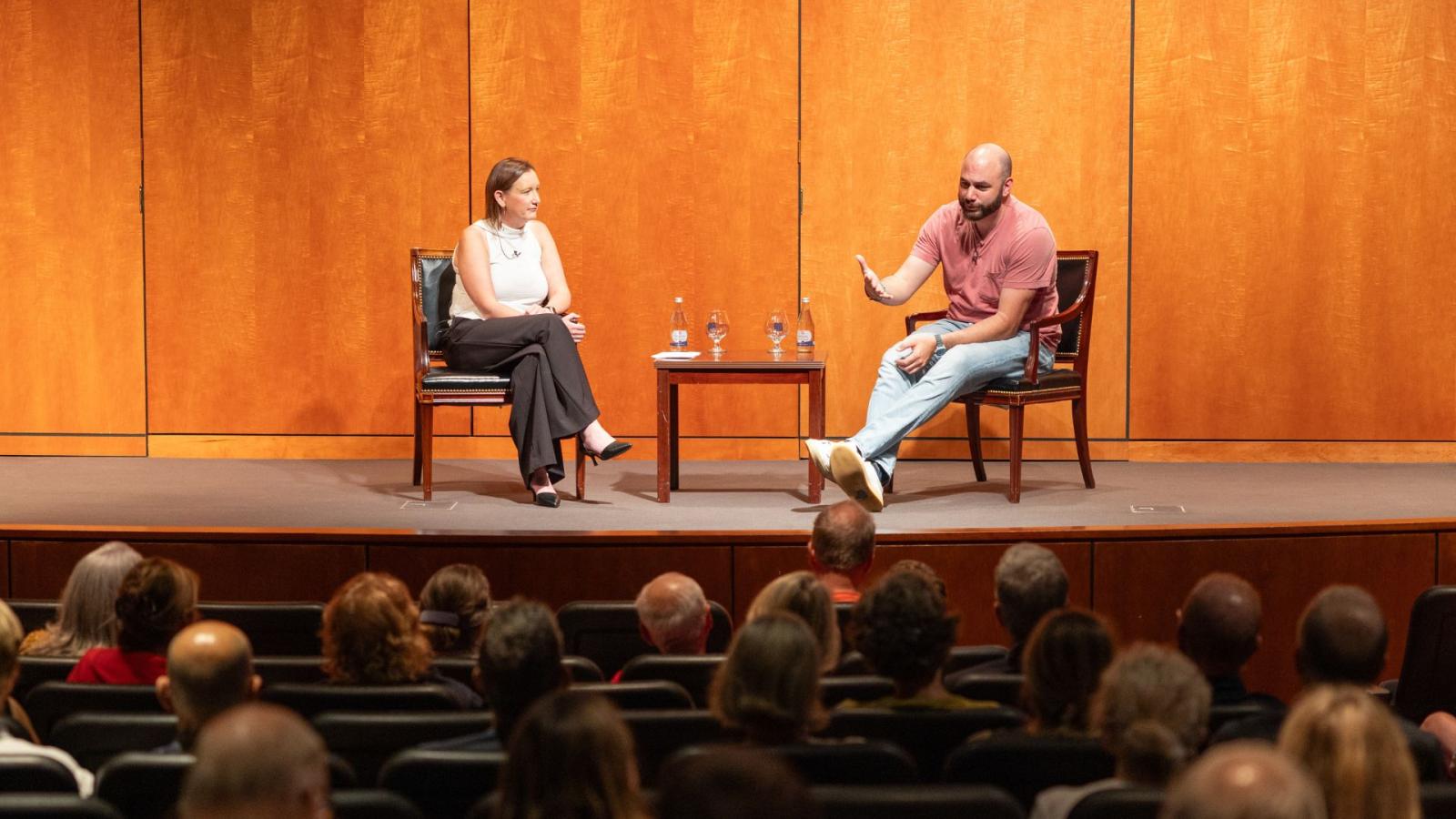
On July 24, the MCV Foundation and Virginia Museum of History & Culture co-hosted the sixth Health in History event titled “Good Food for All: An Institutional Dining Revolution.” Photos: Daniel Sangjib Min, MCV Foundation
Health in History: Good Food for All
Chef Dan Giusti’s core belief is simple: everyone deserves nourishing food cooked with care and passion.
Giusti is a former head chef of the Michelin-starred restaurant Noma in Copenhagen who took his culinary expertise from the realm of cloth napkins, aged wines and marbled meats to boisterous school cafeterias full of energetic children.
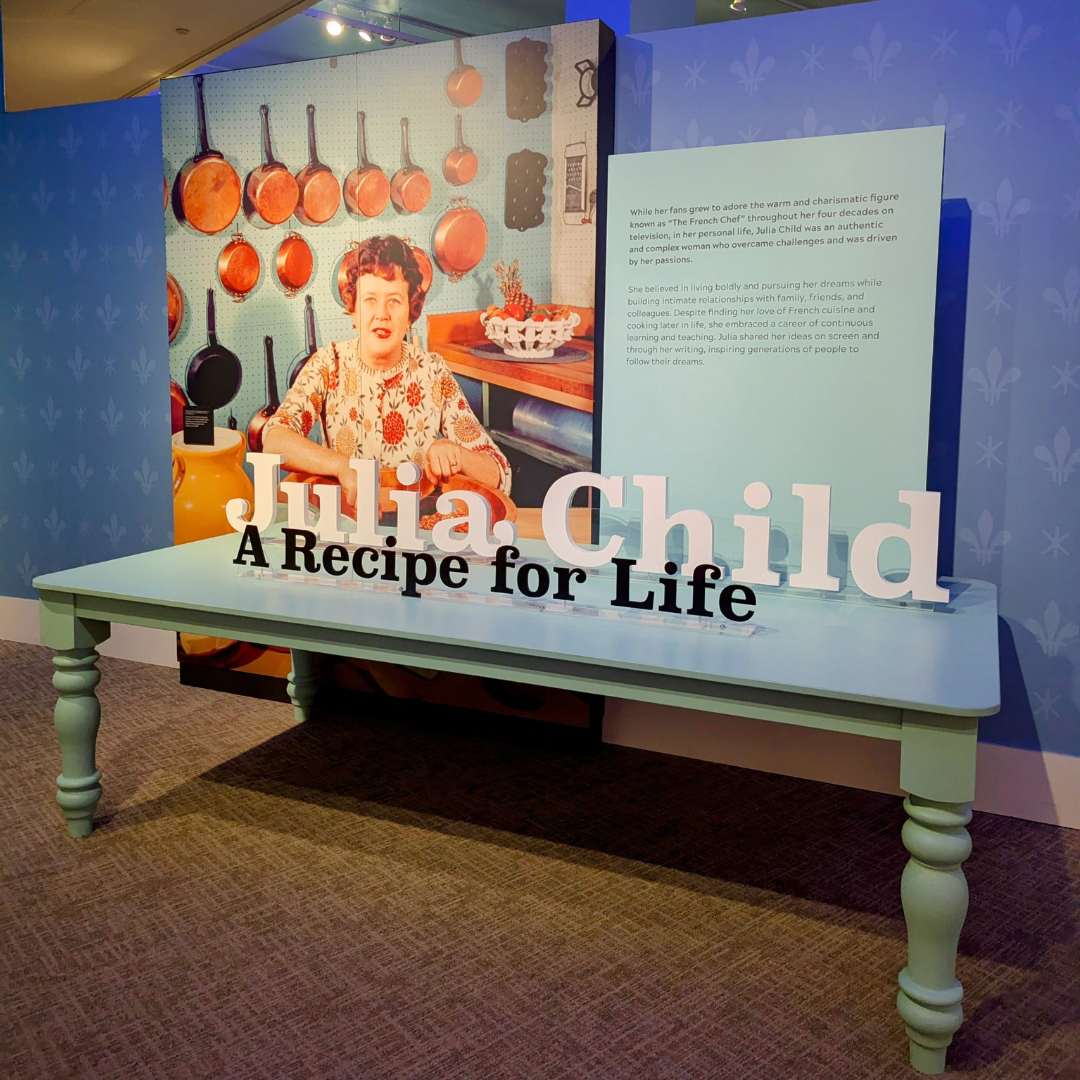
“I wanted to cook for people who depend on the food,” said Giusti, who attended the Culinary Institute of America in New York and returned to the U.S. from Copenhagen to tackle an unsolved culinary problem: school food. “By cooking for people often, you can really shape a lot about the way they live their lives.”
Giusti was a featured guest for this year’s Health in History event titled “Good Food for All: An Institutional Dining Revolution.” Co-hosted by the MCV Foundation and the Virginia Museum of History & Culture, the event complemented the museum’s current exhibition of Julia Child. Giusti had an engaging dialogue on stage with Victoria Findlay, Ph.D., associate professor in the Department of Surgery at the VCU School of Medicine and co-leader of the Cancer Prevention and Control Programs at VCU Massey Comprehensive Cancer Center. A reception followed the event, which allowed attendees to meet and talk with the featured speakers.
It makes sense to have chefs in the school kitchen.
Dan Giusti, founder and CEO, Brigaid
This event was the sixth in the Health in History series, which is made possible by a grant from the Virginia Sargeant Reynolds Foundation. The partnership between the MCV Foundation and the Virginia Museum of History & Culture began as an idea from Austin Brockenbrough III, an honorary vice chair of the museum’s board and a lifetime honorary trustee of the MCV Foundation.
On stage, Giusti shared how he founded Brigaid, an organization that places professional chefs into institutional food service programs including schools, assisted living facilities and prison systems. By placing professional chefs in institutions, Brigaid aims to set institutional food service programs up to succeed and, in turn, positively impact the people and communities they serve.
Many institutional foodservice programs lack the resources, culinary expertise and support they need to thrive. Therefore, hardworking staff members struggle to prepare meals within strict nutritional guidelines and budgets, diners are often dissatisfied, food is wasted and problems such as hunger and diet-related illnesses persist.
Brigaid’s process is to work with school foodservice directors and train the current kitchen staff so they feel comfortable cooking. His chefs also examine kitchen spaces to enhance their layout and share advice to help each school improve recipes to meet their goals.
“It makes sense to have chefs in the school kitchen,” Giusti said. Chefs are trained not only to cook delicious meals, but they are required to cook within mandated guidelines and meet budget parameters, which is vitally important in institutional food service. “Chefs also often need to get creative, which is especially important when making meals for kids.”
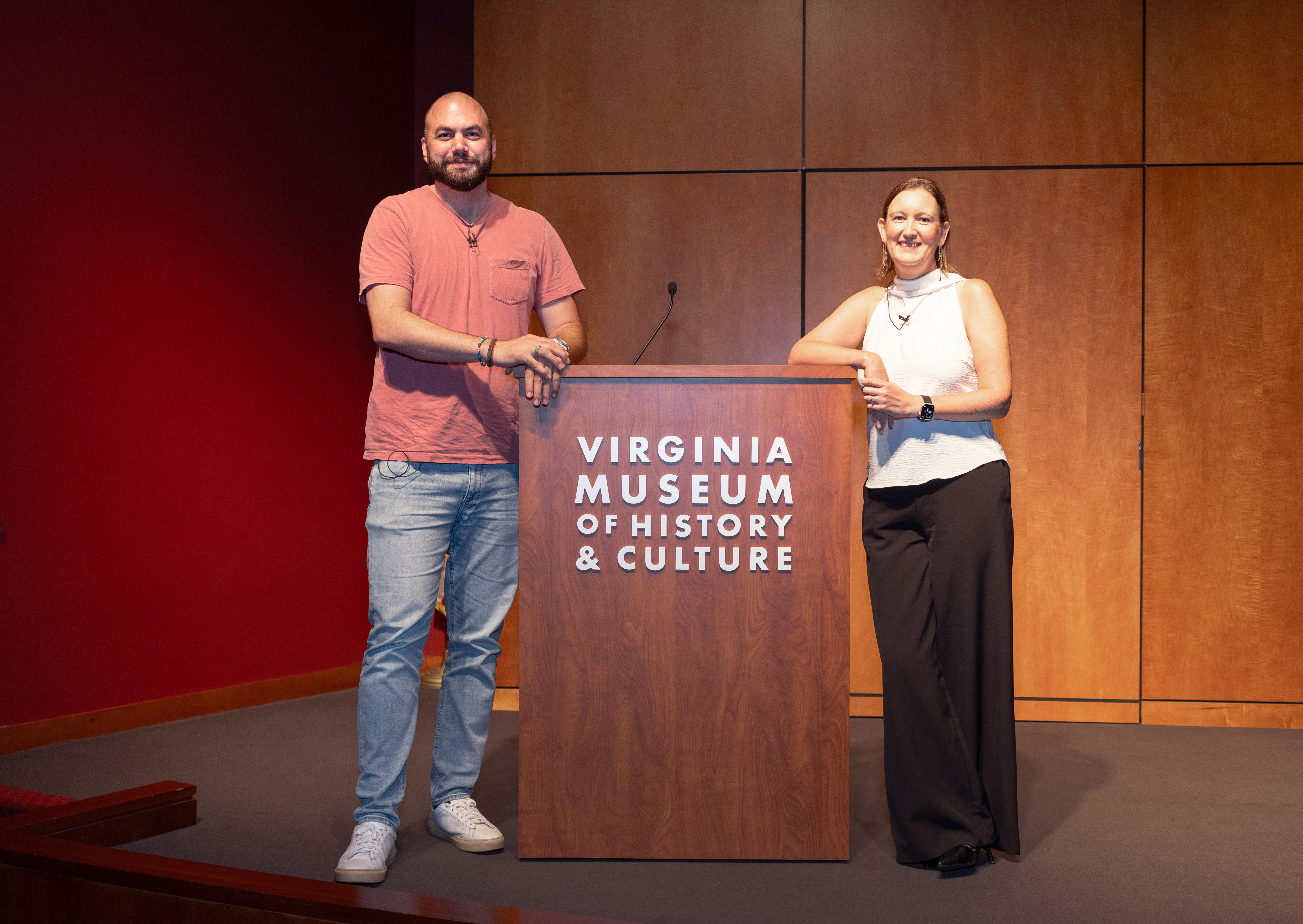
Currently, Brigaid is in eight states, with a team of 60, 58 of whom are chefs. While the starting point for their mission is to serve good food in schools, Giusti hopes that it will then be supplemented with food nutrition education so students understand the correlation between what they’re eating and their health.
Dr. Findlay’s research focuses on that connection. In her lab on the MCV Campus at VCU, she studies the effects of processed foods on health and the benefits of going back to the roots of eating from scratch. She and her husband, David Turner, Ph.D., also an associate professor, are examining the negative effects of advanced glycation and products (A.G.E.s) on inflammation and cancer risk.
Nearly every food naturally contains A.G.E.s and can be formed within the body as sugar combines with fat, protein and even genetic material. Human bodies are only capable of eliminating a small fraction of the A.G.E.s they consume. Over time, A.G.E.s accumulate in tissues and organs, causing increased oxidative stress and inflammation that research suggests contributes to chronic diseases throughout the body.
“What people don’t know is that they have massive amounts of power over their own endpoints,” Dr. Findlay said. “With respect to chronic disease, you can change your disease outcome by changing small things in your diet like eating more fresh foods or cooking from scratch.”
If you would like to learn more about the Health in History series, please contact Brian Thomas, the foundation’s executive vice president and chief development officer.
